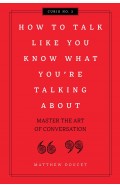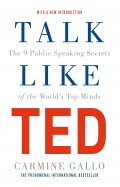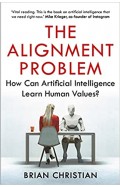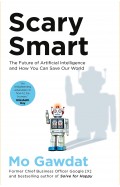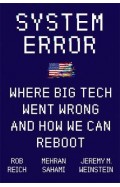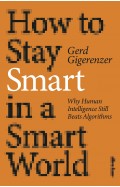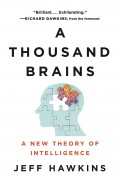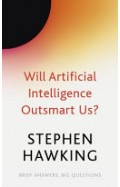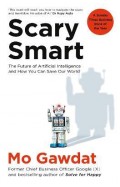- Home
- Categories
- Non Fiction
- Self Help
- 50 Self Help books People Should Read in 2023
- Futureproof - 9 Rules for Humans in the Age of Automation
Futureproof - 9 Rules for Humans in the Age of Automation
By: Kevin Roose
-
Rs 1,695.00
Due to constant currency fluctuation, prices are subject to change with or without notice.
Futureproof - 9 Rules for Humans in the Age of Automation
By: Kevin Roose
Rs 2,995.00 Ex Tax :Rs 2,995.00
Futureproof - 9 Rules for Humans in the Age of Automation
By: Kevin Roose
Rs 1,695.00 Ex Tax :Rs 1,695.00
Zubin Mehta: A Musical Journey (An Authorized Biography)
By: VOID - Bakhtiar K. Dadabhoy
Rs 840.00 Rs 1,050.00 Ex Tax :Rs 840.00
The Righteous Mind: Why Good People are Divided by Politics and Religion
By: Jonathan Haidt
Rs 3,295.00 Ex Tax :Rs 3,295.00
Life in Five Senses - How Exploring the Senses Got Me Out of My Head and Into the World
By: Gretchen Rubin
Rs 3,795.00 Ex Tax :Rs 3,795.00
The Personal MBA A WorldClass Business Education in a Single Volume - (PB)
By: Josh Kaufman
Rs 3,295.00 Ex Tax :Rs 3,295.00
How to Talk Like You Know What You're Talking About
By: Matthew J Doucet
Rs 2,245.50 Rs 2,495.00 Ex Tax :Rs 2,245.50
Talk Like TED - The 9 Public Speaking Secrets of the World's Top Minds
By: Carmine Gallo
Rs 2,495.00 Ex Tax :Rs 2,495.00
Genius Makers : The Mavericks Who Brought A.I. to Google, Facebook, and the World
By: Cade Metz
Rs 3,495.00 Ex Tax :Rs 3,495.00
The Alignment Problem - How Can Machines Learn Human Values?
By: Brian Christian
Rs 2,295.00 Ex Tax :Rs 2,295.00
Scary Smart: The Future of Artificial Intelligence and How You Can Save Our World
By: Mo Gawdat
Rs 3,795.00 Ex Tax :Rs 3,795.00
System Error : Where Big Tech Went Wrong and How We Can Reboot
By: Rob Reich
Rs 2,155.50 Rs 2,395.00 Ex Tax :Rs 2,155.50
How to Stay Smart in a Smart World: Why Human Intelligence Still Beats Algorithms
By: Gerd Gigerenzer
Rs 3,145.50 Rs 3,495.00 Ex Tax :Rs 3,145.50
A Thousand Brains - A New Theory of Intelligence
By: Jeff Hawkins
Rs 5,395.50 Rs 5,995.00 Ex Tax :Rs 5,395.50
Futureproof - 9 Rules for Humans in the Age of Automation
By: Kevin Roose
Rs 1,695.00 Ex Tax :Rs 1,695.00
Scary Smart : The Future of Artificial Intelligence and How You Can Save Our World
By: Mo Gawdat
Rs 2,795.00 Ex Tax :Rs 2,795.00
The Righteous Mind: Why Good People are Divided by Politics and Religion
By: Jonathan Haidt
Rs 3,295.00 Ex Tax :Rs 3,295.00
Life in Five Senses - How Exploring the Senses Got Me Out of My Head and Into the World
By: Gretchen Rubin
Rs 3,795.00 Ex Tax :Rs 3,795.00
The Personal MBA A WorldClass Business Education in a Single Volume - (PB)
By: Josh Kaufman
Rs 3,295.00 Ex Tax :Rs 3,295.00
How to Talk Like You Know What You're Talking About
By: Matthew J Doucet
Rs 2,245.50 Rs 2,495.00 Ex Tax :Rs 2,245.50
Talk Like TED - The 9 Public Speaking Secrets of the World's Top Minds
By: Carmine Gallo
Rs 2,495.00 Ex Tax :Rs 2,495.00
No recently viewed books available at the moment.
Zubin Mehta: A Musical Journey (An Authorized Biography)
By: VOID - Bakhtiar K. Dadabhoy
Rs 840.00 Rs 1,050.00 Ex Tax :Rs 840.00
Futureproof - 9 Rules for Humans in the Age of Automation
By: Kevin Roose
Rs 2,995.00 Ex Tax :Rs 2,995.00
Futureproof - 9 Rules for Humans in the Age of Automation
By: Kevin Roose
Rs 1,695.00 Ex Tax :Rs 1,695.00
The Righteous Mind: Why Good People are Divided by Politics and Religion
By: Jonathan Haidt
Rs 3,295.00 Ex Tax :Rs 3,295.00
Life in Five Senses - How Exploring the Senses Got Me Out of My Head and Into the World
By: Gretchen Rubin
Rs 3,795.00 Ex Tax :Rs 3,795.00
The Personal MBA A WorldClass Business Education in a Single Volume - (PB)
By: Josh Kaufman
Rs 3,295.00 Ex Tax :Rs 3,295.00
How to Talk Like You Know What You're Talking About
By: Matthew J Doucet
Rs 2,245.50 Rs 2,495.00 Ex Tax :Rs 2,245.50
Talk Like TED - The 9 Public Speaking Secrets of the World's Top Minds
By: Carmine Gallo
Rs 2,495.00 Ex Tax :Rs 2,495.00












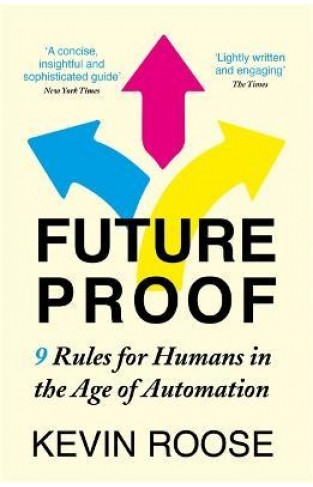
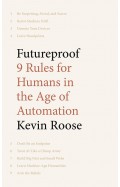
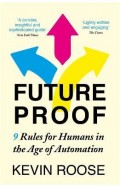
-120x187.jpg?q6)





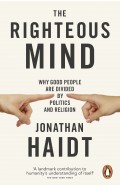
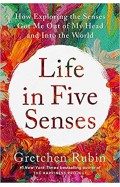
-120x187.jpg?q6)
